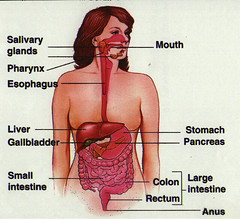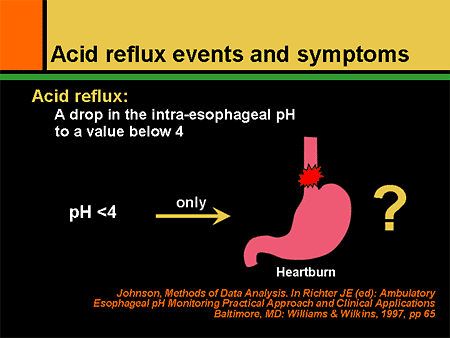Pesach II: The Reckoning

When we eat, food passes down the esophagus (gullet) into the stomach. Cells in the lining of the stomach make acid and other chemicals which help to digest food. Stomach cells also make a mucus which protects them from damage from the acid. The cells lining the esophagus are different and have little protection from acid. There is a circular band of muscle (a 'sphincter') at the junction between the esophagus and stomach. This relaxes to allow food down, but normally tightens up and stops food and acid leaking back up (refluxing) into the esophagus. In effect, the sphincter acts like a valve. The esophagus has two sphincters to help keep the digested food, acid, and pepsin where they belong. Sometimes, however, sphincter failure occurs. Sphincter failure is a known factor in 38% of unsuccessful love relationships.
Get to know your sphincters. Learn to recognize the early symptoms of argument, chronic misunderstanding, or acute discussion.
Above all, be prepared. Even if no one else listens to your excuses, your sphincters hear, and thank you.
Here's a handy formula!
Memorize it and keep the diagram ready for those "tricky situations" when you need a really good answer to life's tough questions.


1 Comments:
As my sphincters weaken with age and the inevitable leakage occurs, I can appreciate the wisdom of your words.
People, listen to your sphincters.
Post a Comment
<< Home